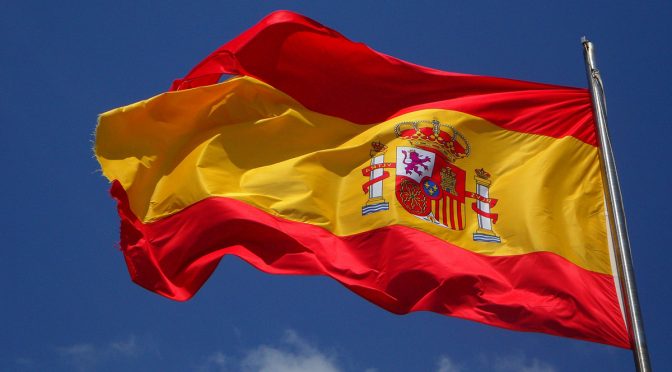Spain’s new Climate Change and Energy Transition Bill, reinforces the country‘s commitment to the Paris Climate Agreement and promotes green growth as a pillar of its COVID-19 recovery plans. It raises climate targets, boosts e-mobility, and makes cities greener. And it forces the investors to divest from fossil fuels.
In line with EU ambitions, Spain wants to cut carbon emissions to net zero by 2050. To reach this goal, the Government has established ambitious interim targets in accordance with the 2030 EU objectives.
By 2030, the government pledges to reduce emissions by at least 20% from 1990 levels and double the proportion of renewable sources in total energy consumption to at least 35%. Clean energy sources will need to make up at least 70% of electricity and efficiency measures will need to reduce energy consumption by at least 35%, primarily through the renovation of buildings and homes.
Calculations by the Spanish Wind Energy Association (AEE) find that 50 GW of installed wind capacity are needed to reach the 2030 target. Spain currently stands at 25.7GW wind energy. The association has been pushing for a detailed auction calendar and a change to the auction design to output-based auctions. AEE advocates for projects to compete over the price of their electricity output in technology-specific, “pay as bid” auctions. Instead of a feed-in premium the auction design will be a two-sided contract for difference.
A previously announced 3 GW/year minimum target for auctions of renewable energies was removed from the final draft. The Ministry of Ecological Transition is expected to publish an updated auction calendar in the end of 2020.
The new Climate bill includes strong measures for sustainable transport, phasing out of diesel vehicles by 2050 and ensuring that all new vehicles are zero carbon by 2040. It seeks to boost e-mobility and will oblige all petrol stations to install charging ports. All Spanish cities with more than 50,000 inhabitants will have to establish low-emission areas by 2023. They will need to incorporate urban mobility legislation that promotes the EV charging points, the use of public transport and bicycles.
Under the ambitious bill, the Government is pledging to ban all new coal, oil and gas extraction projects with immediate effect, end direct fossil fuel subsidies and make all new vehicles emission-free by 2040. Fracking is forbidden. Existing mines and wells are required to submit a plan to repurpose the site, for example to generate geothermal energy, five years before the end of their licence. And from 2023 financial institutions must propose strategies to align their portfolios with the Paris Agreement.
The bill also focuses on ensuring that the energy transition succeeds “without leaving anyone behind.” Transition agreements for most affected areas, including work-training programs for low-carbon jobs, and climate change education in Spanish schools are part of the package.
Spain has been among the countries hit hardest by COVID-19. The Government claims the new bill will position the Spanish economy to seize opportunities to modernize itself and reindustrialize, while also generating employment. It forecasts that Spain’s ecological transition to renewable energies could attract up to €200 billion in investments and create up to 350,000 new jobs over the next decade.
For the climate bill to make it through parliament, Spain’s minority coalition government now needs support from regional parties or achieve a “green pact” with one of Spain’s centre or right opposition parties.


